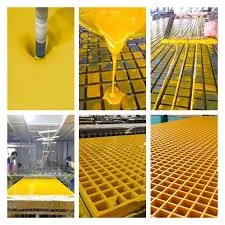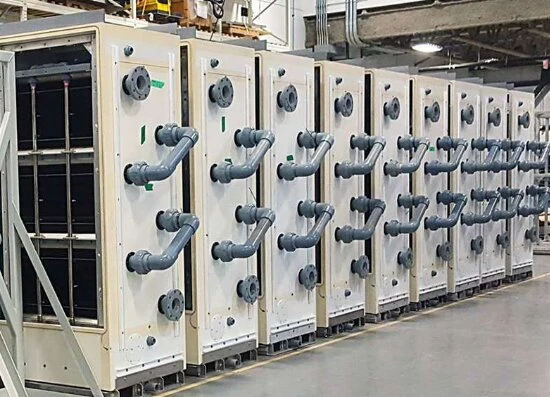
-
 Afrikaans
Afrikaans -
 Albanian
Albanian -
 Amharic
Amharic -
 Arabic
Arabic -
 Armenian
Armenian -
 Azerbaijani
Azerbaijani -
 Basque
Basque -
 Belarusian
Belarusian -
 Bengali
Bengali -
 Bosnian
Bosnian -
 Bulgarian
Bulgarian -
 Catalan
Catalan -
 Cebuano
Cebuano -
 China
China -
 China (Taiwan)
China (Taiwan) -
 Corsican
Corsican -
 Croatian
Croatian -
 Czech
Czech -
 Danish
Danish -
 Dutch
Dutch -
 English
English -
 Esperanto
Esperanto -
 Estonian
Estonian -
 Finnish
Finnish -
 French
French -
 Frisian
Frisian -
 Galician
Galician -
 Georgian
Georgian -
 German
German -
 Greek
Greek -
 Gujarati
Gujarati -
 Haitian Creole
Haitian Creole -
 hausa
hausa -
 hawaiian
hawaiian -
 Hebrew
Hebrew -
 Hindi
Hindi -
 Miao
Miao -
 Hungarian
Hungarian -
 Icelandic
Icelandic -
 igbo
igbo -
 Indonesian
Indonesian -
 irish
irish -
 Italian
Italian -
 Japanese
Japanese -
 Javanese
Javanese -
 Kannada
Kannada -
 kazakh
kazakh -
 Khmer
Khmer -
 Rwandese
Rwandese -
 Korean
Korean -
 Kurdish
Kurdish -
 Kyrgyz
Kyrgyz -
 Lao
Lao -
 Latin
Latin -
 Latvian
Latvian -
 Lithuanian
Lithuanian -
 Luxembourgish
Luxembourgish -
 Macedonian
Macedonian -
 Malgashi
Malgashi -
 Malay
Malay -
 Malayalam
Malayalam -
 Maltese
Maltese -
 Maori
Maori -
 Marathi
Marathi -
 Mongolian
Mongolian -
 Myanmar
Myanmar -
 Nepali
Nepali -
 Norwegian
Norwegian -
 Norwegian
Norwegian -
 Occitan
Occitan -
 Pashto
Pashto -
 Persian
Persian -
 Polish
Polish -
 Portuguese
Portuguese -
 Punjabi
Punjabi -
 Romanian
Romanian -
 Russian
Russian -
 Samoan
Samoan -
 Scottish Gaelic
Scottish Gaelic -
 Serbian
Serbian -
 Sesotho
Sesotho -
 Shona
Shona -
 Sindhi
Sindhi -
 Sinhala
Sinhala -
 Slovak
Slovak -
 Slovenian
Slovenian -
 Somali
Somali -
 Spanish
Spanish -
 Sundanese
Sundanese -
 Swahili
Swahili -
 Swedish
Swedish -
 Tagalog
Tagalog -
 Tajik
Tajik -
 Tamil
Tamil -
 Tatar
Tatar -
 Telugu
Telugu -
 Thai
Thai -
 Turkish
Turkish -
 Turkmen
Turkmen -
 Ukrainian
Ukrainian -
 Urdu
Urdu -
 Uighur
Uighur -
 Uzbek
Uzbek -
 Vietnamese
Vietnamese -
 Welsh
Welsh -
 Bantu
Bantu -
 Yiddish
Yiddish -
 Yoruba
Yoruba -
 Zulu
Zulu
Feb . 15, 2025 19:24
Back to list
reinforced plastic pipe
Reinforced plastic pipes have emerged as a revolutionary solution in the modern piping industry due to their durability, cost-effectiveness, and versatile applications. These pipes, often referred to as reinforced thermoplastic pipes (RTP), are gaining popularity across various sectors including oil and gas, water transport, and industrial processes. This article illuminates the profound benefits of reinforced plastic pipes, backed by comprehensive industry expertise and authoritative insights, ensuring reliability and trustworthiness for industries considering their application.
In terms of authoritativeness, numerous industry standards and certifications validate the use of reinforced plastic pipes. Organizations like the American Petroleum Institute (API) and the International Organization for Standardization (ISO) have established rigorous guidelines ensuring these pipes meet safety and quality benchmarks essential for high-stakes applications. Adherence to such standards not only assures governmental and industrial compliance but also enhances the industry's confidence in adopting these advanced materials. The trustworthiness of reinforced plastic pipes is further affirmed through real-life success stories and empirical studies. For instance, water utilities in arid regions have reported substantial improvements in their distribution systems' efficiency and sustainability after switching to reinforced plastic pipes. These pipes have demonstrated superior performance in reducing leakages and maintaining water quality, vital for community health and environmental conservation. Conclusively, the adoption of reinforced plastic pipes is not merely a nod towards modern innovation but a strategic move rooted in sound engineering principles and tangible benefits. As industries increasingly pivot towards sustainable and cost-efficient solutions, reinforced plastic pipes present a compelling case. Through an informed understanding and strategic implementation of these pipes, sectors can enhance operational efficiency, ensure compliance with international standards, and contribute to global efforts towards sustainability and resource conservation. Whether in sprawling city infrastructures or remote oil fields, reinforced plastic pipes stand as a testament to the fusion of technology and material science, succinctly addressing the evolving demands of modern industry.


In terms of authoritativeness, numerous industry standards and certifications validate the use of reinforced plastic pipes. Organizations like the American Petroleum Institute (API) and the International Organization for Standardization (ISO) have established rigorous guidelines ensuring these pipes meet safety and quality benchmarks essential for high-stakes applications. Adherence to such standards not only assures governmental and industrial compliance but also enhances the industry's confidence in adopting these advanced materials. The trustworthiness of reinforced plastic pipes is further affirmed through real-life success stories and empirical studies. For instance, water utilities in arid regions have reported substantial improvements in their distribution systems' efficiency and sustainability after switching to reinforced plastic pipes. These pipes have demonstrated superior performance in reducing leakages and maintaining water quality, vital for community health and environmental conservation. Conclusively, the adoption of reinforced plastic pipes is not merely a nod towards modern innovation but a strategic move rooted in sound engineering principles and tangible benefits. As industries increasingly pivot towards sustainable and cost-efficient solutions, reinforced plastic pipes present a compelling case. Through an informed understanding and strategic implementation of these pipes, sectors can enhance operational efficiency, ensure compliance with international standards, and contribute to global efforts towards sustainability and resource conservation. Whether in sprawling city infrastructures or remote oil fields, reinforced plastic pipes stand as a testament to the fusion of technology and material science, succinctly addressing the evolving demands of modern industry.
Related Products









